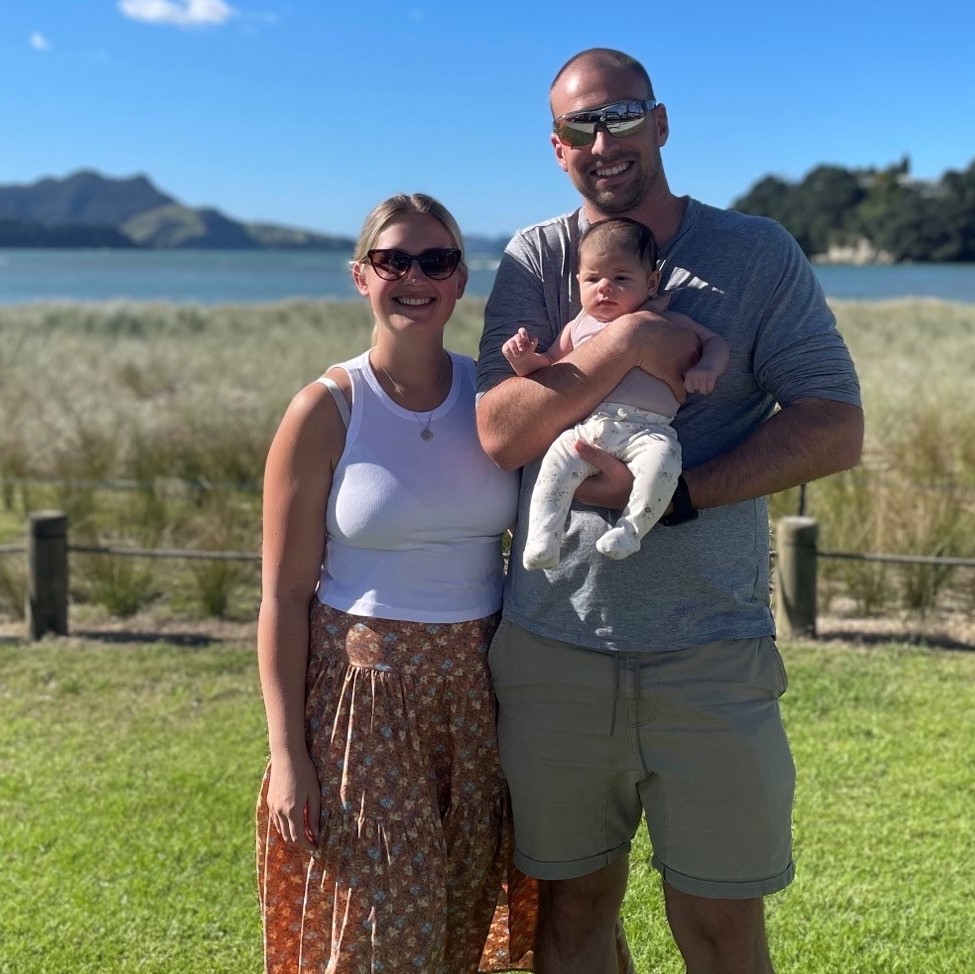Prenatal Testing and Screening in Aotearoa

Prenatal screening is offered to all hapū people to monitor your wellbeing and the growth and development of your pēpi. Let’s look at the standard testing timeline in Aotearoa and the options available to you.
Blood tests, ultrasounds, urine tests, and genetic tests are the main types of screening offered to pregnant people in New Zealand. Your LMC will also offer to measure the size of your bump, check your blood pressure and listen to the baby’s heartbeat at your appointments.
It is your decision whether or not you would like to have tests done during your pregnancy – all testing is voluntary. You should make your decision after being informed of the nature of the screening test, possible results, and the options available to you after consulting with your midwife or obstetrician.
Pregnant people who have a pre-existing medical condition, develop a medical condition or pregnancy-related condition, or are carrying twins or multiples are deemed high-risk and may require additional tests.
First Trimester
First Blood Test
At your first appointment with your LMC, you will be offered a blood test which is free. One blood sample is taken and will screen for:
- Your blood group and rhesus factor (whether you have a positive or negative blood group)
- Antibodies
- Full blood count, including your haemoglobin/iron levels, platelet and white cell count
- Any infection present (syphilis, HIV, hepatitis C)
- Immunity to rubella and hepatitis B
- HbA1c for undiagnosed diabetes or a potential future diagnosis
The Ministry of Health recommends that you have this blood screening test as soon as possible after you know you are hapū as knowing whether you have these conditions can help keep you and your pēpi well.
Dating Scan
If you are unsure of your last menstrual period or conception dates, your LMC may offer you a scan to confirm your baby’s estimated due date. The technician performing the scan will also check if you are having multiple babies.
First Trimester Combined Screening
Within the first 14 weeks, you will be offered a screening test for Down syndrome and other chromosomal abnormalities. This test includes an ultrasound scan and a blood test, MSS1.
The ultrasound scan is called the fetal nuchal translucency test (NT), where the thickness of the fluid-filled space at the base of your baby’s neck will be measured. This scan is best taken around 12 weeks. There may be a charge for this scan.
The MSS1 blood test measures the presence of two specific chemicals in your blood. This blood test is free and the best time for it to be taken is weeks nine to 10.
The laboratory will combine results of these two tests with other factors such as your age, weight, and how many weeks pregnant you are. The final result will either be ‘low risk’ or ‘increased risk’ of your baby having one or more of the screened conditions. If your results show your pēpi is at ‘increased risk’ you will be offered further testing called diagnostic testing.
It’s important to note that screening tests will let you know whether your baby is more or less likely to have a medical condition but do not give you a definitive diagnosis.
Second trimester
Anatomy Scan
At 18-22 weeks, all pregnant people are offered an anatomy scan which is where your baby will be assessed via ultrasound to check they are growing and developing normally. It usually takes around 30 minutes. Major structures, including their head, face, spine, heart, abdomen, and limbs will all be checked to make sure they are typically formed. The technician will also assess the amniotic fluid around your baby and the placenta/whenua. If any problems are found, this will be discussed with you.
You may request to find out the sex of your pēpi during this scan if you would like to but be sure to let the radiologist know beforehand if you don’t want to know!
Gestational Diabetes Screening
A second diabetes screening will be offered around 24-28 weeks. This is to check to see if you are at risk of developing a condition called gestational diabetes (diabetes in pregnancy).
The oral glucose challenge test (OGCT) measures how effectively your body processes sugar and for this, you will be required to drink a sugary drink. Then one hour later a blood sample will be taken. If the results from this test come back as high, your LMC will offer you an oral glucose tolerance test (OGTT) to confirm whether or not you have gestational diabetes. See our gestational diabetes article for more information.
Maternal Serum Screening
Some pregnant people are offered a blood test in the second trimester called the maternal serum screening (MSS2) if the MSS1 blood test or NT scan were unable to be obtained in the first trimester. This is generally done between 14-18 weeks and will give you a ‘low’ or ‘increased’ chance of your baby having one or more of the screened conditions by taking the blood tests into account, alongside other information about you and your pregnancy.
See our Nutritional Supplement page for advice about increasing your iron levels.
Third trimester
Blood Test
Your LMC may offer you a blood test around this time, especially if you were found to have low iron stores in previous blood screens, or if you have a rhesus negative blood type or diabetes. See our page Rh (Rhesus Factor) Incompatibility for further information on how having a rhesus negative blood type may affect your pregnancy.
Late-Pregnancy Ultrasound
You may be offered an ultrasound scan, often called a growth scan, in the second half of your pregnancy to assess the size of your pēpi, their positioning, and your amniotic fluid levels. It’s your choice to have this scan or not. Some pregnant people also have these scans to monitor the position of their placenta/whenua.
Urine Tests
Urine tests are routinely offered to hapū people in New Zealand to detect proteinuria which is a marker of pre-eclampsia (a rare but potentially serious pregnancy complication), to look for urinary tract infections, or to detect glycosuria which is a marker of diabetes in pregnancy. Your LMC will ask for a urine sample at each appointment.
Non-Invasive Prenatal Testing (NIPT)
Non-Invasive Prenatal Testing is a type of antenatal screening that is available in New Zealand for any pregnant person from as early as nine weeks. NIPT only requires a blood test to be taken from the pregnant person and uses state of the art next generation DNA sequencing to provide a clear and accurate result for specific chromosomal abnormalities. This testing is currently not funded and incurs a cost. Illumiscreen is a NIPT provider whose test provides accurate and reliable information on the chromosomal health of your unborn baby. The cost of the Illumiscreen test starts at $615. Visit illumiscreen.co.nz for more information.



